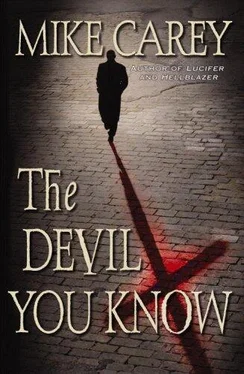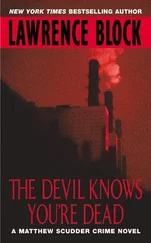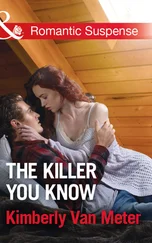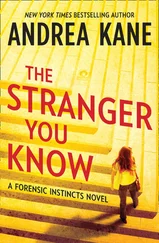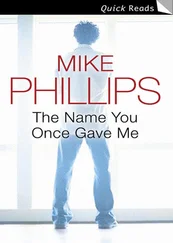The light from a torch dazzled me momentarily—and then the torch itself, wielded in a more blunt-instrument kind of way, smacked me on the side of the head. But since the light of the torch telegraphed the movement, I was moving with it; instead of being brained, I just got a clip to the side of the head, and then I was up and fighting.
Fighting someone who seemed a fair bit more solid than me and who took my body punch in his stride. He hit me again, with his fist this time instead of the torch, and I went down on my back.
I heard the door slam to; that got me up again fast. If my attacker had a key, I could be locked in here. I got both hands around the door handle and leaned down and in. I pulled, and he pulled back against me. I braced myself with one foot on the wall, the other on the floor, and pulled harder.
When the door flew inward, I staggered back and almost went down again—but for the second time I hit the shelves and managed to stay upright. As my attacker’s footsteps retreated along the corridor, I was out of the door and after him. I couldn’t see him up ahead, but I could hear him, his feet crashing on the bare boards. I came out onto the landing at a flat run, registering about a second too late that those pounding footfalls had stopped.
I just about caught a blur of movement from off to my right-hand side, and I started to turn. His shoulder hit me midchest, knocking the breath right out of me and sending me backward in a drunken, flailing stagger. One step, two . . . I would probably have managed to get my balance back if there’d been anything under me on step three. Instead, my trailing foot stepped out into nothingness, and I tipped and fell without a sound off the edge of the landing.
I’m too introspective, maybe, to make a good man of action. Certainly on that short fall, I didn’t have enough time even to react to what was happening. I remember throwing out my arms as if there might be something conveniently placed for me to catch hold of. Only empty air rushed through my fingers, and I closed my eyes, bracing myself—metaphorically speaking—for a solid chunk of marble tiling to rush through my head.
But something writhed out of the shadows to one side of me like the business end of a lash, thwacking solidly against my chest and the side of my head and then snaking around me once, twice, three times. Along the line where it touched me, fire ate its way inward from my skin to my core, and I opened my mouth to scream.
The sickening jolt as I stopped falling turned the scream into a voiceless bullet of breath that shot through my clenched teeth and ricocheted away into the darkness. I dangled for a moment like the bob on the end of a pendulum telling borrowed time. Then the rope loosened and unraveled from around me, and I fell the remaining few feet to the ground.
I landed heavily on the cold tiles, unable for a moment even to suck breath back into my lungs. Someone ran past me, and I got a blurry view of his back as he sped through the open door.
By the time I could get back on my feet and stagger to the door, there was no sign of anybody out on Churchway. A sudden gust of cold wind blew newspaper pages and Styrofoam burger boxes along the pavement, and that was the only movement. After a few moments to get my breath back to normal, I went back inside and climbed the stairs back up to the attic. This time, though, I turned on the lights—so this time, I saw the short dogleg at the end of the corridor, off to the left, that I’d missed the first time around.
There was another door there, too, off the end of the dogleg, and so on the same line as the other left-hand rooms, but maybe slightly smaller. This was where my attacker had hidden—after pushing open another door on the main corridor so that I’d be that bit more likely to turn my back on him before I reached him. Clever guy. Clever and scared and just a bit desperate. Someone who had taken advantage of the archive being open after hours to slip back inside and . . . well, and what?
I tried the door. It opened like all the others, and there was a functional light switch just inside. It showed me a room no different from any of the ones I’d already seen. No shelves this time, but a big bundle of flat-packed storage boxes tied with string stood propped against one wall. On the floor there was a roll of brown parcel tape and a plastic supermarket bag that, on inspection, proved to be stuffed with a great many other plastic supermarket bags. No big revelations here. Maybe the guy had just retreated in front of me as I came up the stairs until he ran out of space to retreat into and came out fighting. They say you ought to be careful when you corner rats.
But there was a cupboard. I only saw it as I turned to leave, because it was a low, squat sort of cupboard, and it was completely hidden behind the door. I pulled on the handle: locked. I probably had the key that would open it sitting right there on Alice’s key ring, but my hands were shaking from my recent air-miss, and it could take me a long time to find it—with the risk that someone down below would see the light where no light should be and draw the wrong conclusion. All in all, it was probably better to wait.
I went downstairs, let myself out, and locked up. I was about to post Alice’s keys and ID card back through the mail slot, but I yielded to a wicked temptation and put them back in my pocket instead. You never knew.
I was intending to go home, but somehow I found myself heading south instead of north. Just down from Russell Square, I found a late-night bar that was still open, went in, and ordered a whisky sour.
I was bone weary, and I wasn’t thinking all that straight, but coming to the archive by night had succeeded beyond my wildest dreams. It wasn’t some freak accident that had tangled me up in the ropes of the builders’ pulley. It wasn’t the air that had held me and stopped me from falling. It was her. And in wrapping herself around me like that, she’d come in so close that I couldn’t possibly fail to get what I needed. I had her now, had her mapped out in my mind in many dimensions—a vivid sensory snapshot of her essence and her parameters that was untranslatable except into music and that I could no more forget than I could forget my own name.
I toasted myself in silence. They think it’s all over, said Ken Wolstenholme’s voice from deep within the dusty archive of my head.
Well, it is now.
OVER THERE,” WHISPERED JOHN GITTINGS. “IN THE corner, behind the hedge.”
I looked where he was pointing and saw nothing. But then a second later, the leaves of the box hedge rustled again, although there wasn’t the slightest breath of wind. One of the keepers raised his rifle, and I pushed it right back down again.
“You don’t even know what you’d be hitting,” I muttered. “You’d look pretty bloody stupid if it was a peacock.”
John and I exchanged a glance as the keeper shipped his rifle again with obvious resentment. “Pincer movement?” John asked.
“Makes sense,” I said. “I’m going to go around the zebra house and use the back wall for cover. You come in along the line of the hedge on this side, but don’t get in too close. When I round that corner, we should see each other. I’ll give you the high sign, and we both start playing at once.”
John nodded tersely. I turned to the head keeper, a guy named Savage. He wasn’t carrying a rifle, and he seemed to be the only one of the zoo staff who didn’t want to play Buffalo Bill. “The music should drive him out toward you,” I said. “He won’t be able to stick to the hedge because he’ll be hurting too much. If we’re lucky, he’ll just break across the grass, and you can pop him at your leisure.”
“That seems easy enough,” Savage acknowledged.
Читать дальше
